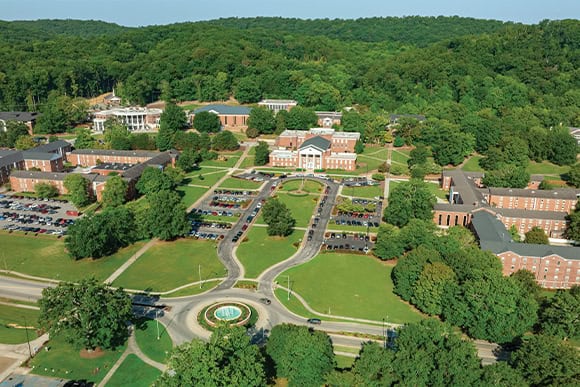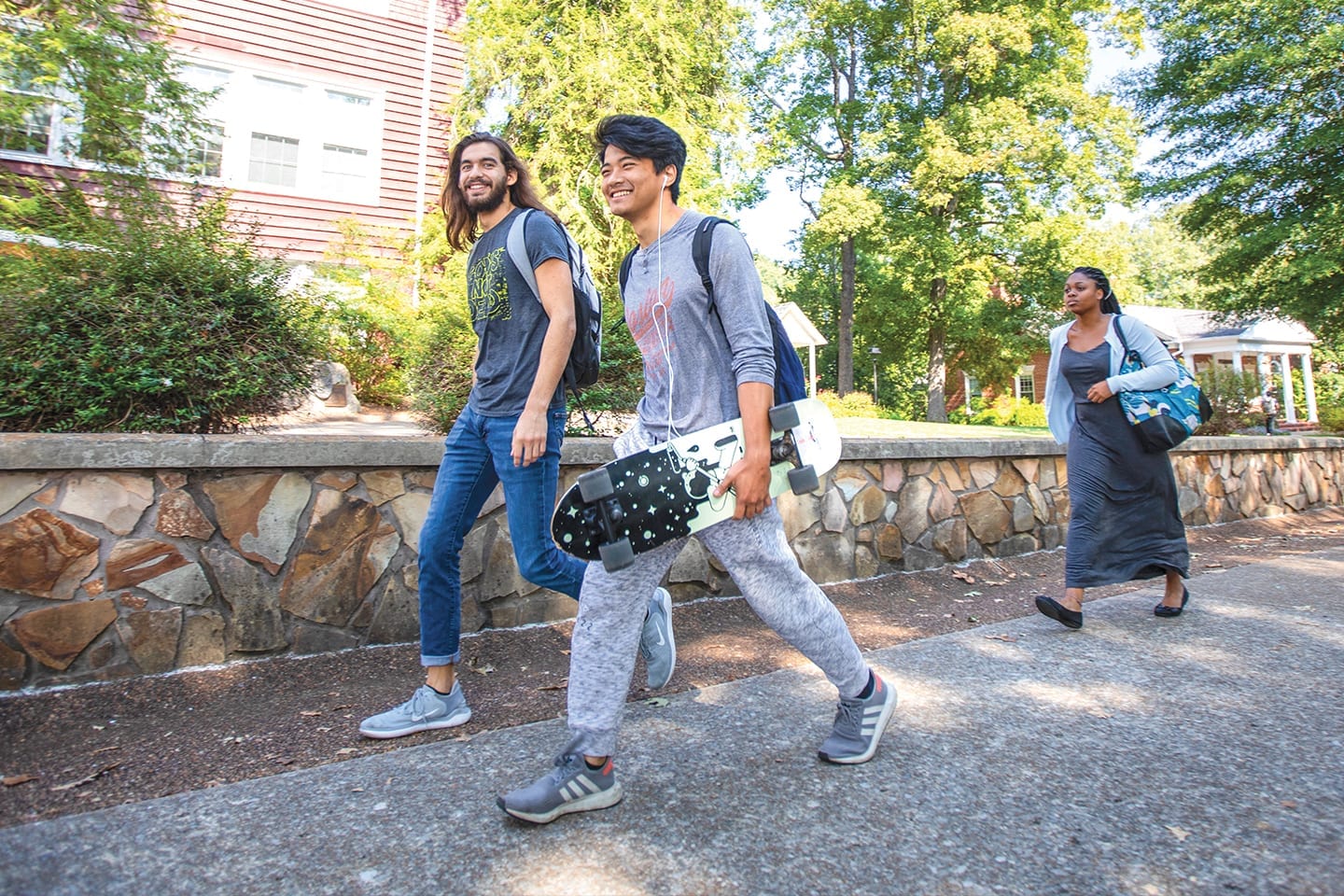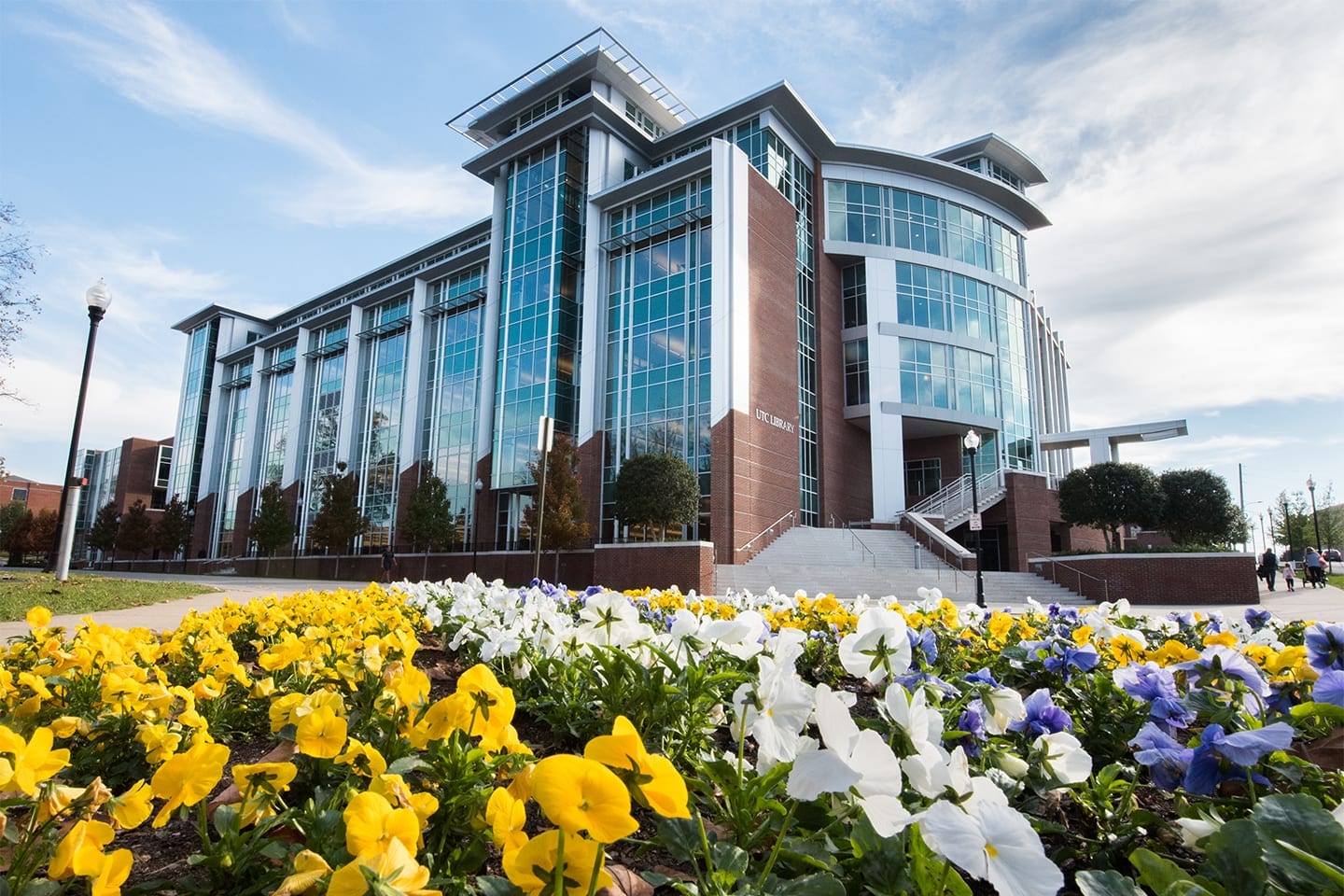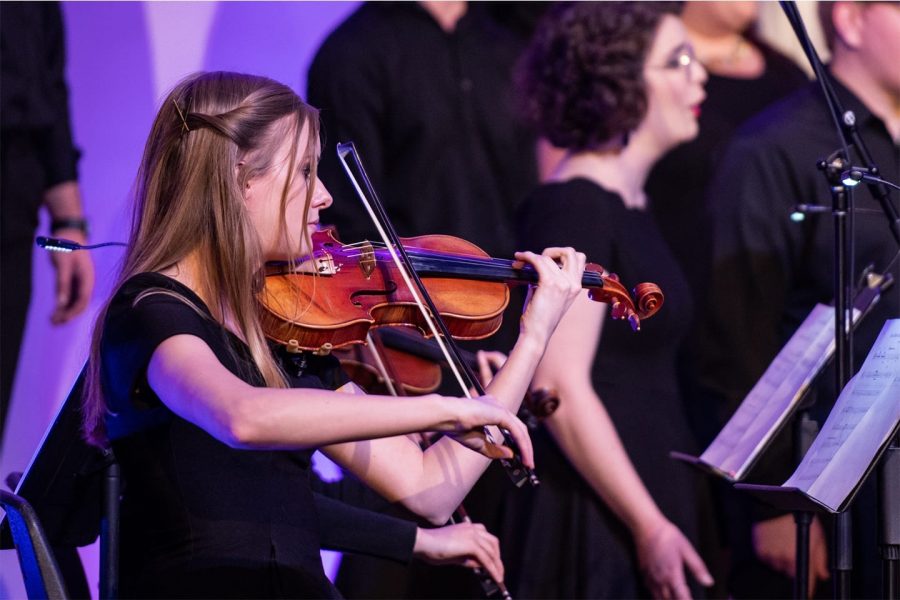The Chattanooga area is home to a number of colleges, universities, and trade schools – each offering a diverse array of degrees and certifications to suit any student’s education and career goals. Pursuing higher education in the Scenic City gives students access to award-winning campuses, first rate education, and immersion in a rapidly growing city with plenty of exciting career opportunities.
The University of Tennessee at Chattanooga (UTC) was founded in 1886, making it a key institute in Chattanooga’s education sector. With more than 150 degree programs and concentrations at both the undergraduate and graduate level, opportunities abound for students to explore a variety of interests.
UTC, which saw record enrollment in 2024, is continuing to expand their offerings to students this year. Work is currently being done to expand the school of nursing with a brand new, state-of-the-art teaching facility. In addition, the university is developing two new doctoral degree programs, including one related to quantum, after receiving a $3.5 million federal grant in 2024 to finalize the UTC Quantum Center. They also announced plans to nearly double the size of their business college facilities over the next several years.
Chattanooga State Community College is home to another of Tennessee’s top nursing programs and boasts the only fully embedded technical college on a community college campus in the state. In 2024, the college broke ground on two new facilities. The Rhea County Higher Education Center will house programs such as welding, robotics, and emergency medicine, and the second facility is a training facility for students in service-based professional programs.
Dalton State College, located in Dalton, Georgia, was ranked the most affordable college in Georgia in 2024 and is among the top 10% of affordable colleges in the nation. The college offers a variety of degree and certificate programs in arts, sciences, and business, and is Georgia’s first Hispanic-serving institution.
The Chattanooga area also has a number of options for private, faith-based education. Cleveland’s Lee University, a liberal arts college, ranked No. 29 on U.S. News & World Report’s 2025 list of “Best Regional Universities in the South.” Covenant College is another Christian liberal arts school, and is located on Lookout Mountain. Known for its small classroom size, Covenant College boasts a 12:1 student ratio and a close-knit community with 85% of students living on campus.
Dayton’s Bryan College offers more than 50 unique fields of study and 14 post-graduate degrees. Southern Adventist University in Collegedale is College Factual’s No. 5 Seventh-day Adventist school in the nation with a 16:1 student-faculty ratio, 75 baccalaureate majors, 20 associate majors, and a variety of minors and certificate programs.
Tennessee prioritizes higher education with programs like former Governor Bill Haslam’s Drive to 55 alliance, which is on track to get 55% of Tennessee residents equipped with a postsecondary degree or certificate by 2025. Programs like Advise TN provide services to high school juniors and seniors to help them enroll in the postsecondary institution where they are most likely to succeed, and State Collaborative on Reforming Education (SCORE) works to close opportunity gaps and support students from kindergarten to career. Since these programs began, many of Tennessee’s higher education institutions have seen an increase in applications to schools, enrollment, and students returning after their first year.

Southern Adventist University

The University of Tennessee at Chattanooga

Southern Adventist University – Graduate Studies
The Chattanooga area is home to a number of colleges, universities, and trade schools – each offering a diverse array of degrees and certifications to suit any student’s education and career goals. Pursuing higher education in the Scenic City gives students access to award-winning campuses, first rate education, and immersion in a rapidly growing city with plenty of exciting career opportunities.
The University of Tennessee at Chattanooga (UTC) was founded in 1886, making it a key institute in Chattanooga’s education sector. With more than 150 degree programs and concentrations at both the undergraduate and graduate level, opportunities abound for students to explore a variety of interests.
UTC, which saw record enrollment in 2024, is continuing to expand their offerings to students this year. Work is currently being done to expand the school of nursing with a brand new, state-of-the-art teaching facility. In addition, the university is developing two new doctoral degree programs, including one related to quantum, after receiving a $3.5 million federal grant in 2024 to finalize the UTC Quantum Center. They also announced plans to nearly double the size of their business college facilities over the next several years.
Chattanooga State Community College is home to another of Tennessee’s top nursing programs and boasts the only fully embedded technical college on a community college campus in the state. In 2024, the college broke ground on two new facilities. The Rhea County Higher Education Center will house programs such as welding, robotics, and emergency medicine, and the second facility is a training facility for students in service-based professional programs.
Dalton State College, located in Dalton, Georgia, was ranked the most affordable college in Georgia in 2024 and is among the top 10% of affordable colleges in the nation. The college offers a variety of degree and certificate programs in arts, sciences, and business, and is Georgia’s first Hispanic-serving institution.
The Chattanooga area also has a number of options for private, faith-based education. Cleveland’s Lee University, a liberal arts college, ranked No. 29 on U.S. News & World Report’s 2025 list of “Best Regional Universities in the South.” Covenant College is another Christian liberal arts school, and is located on Lookout Mountain. Known for its small classroom size, Covenant College boasts a 12:1 student ratio and a close-knit community with 85% of students living on campus.
Dayton’s Bryan College offers more than 50 unique fields of study and 14 post-graduate degrees. Southern Adventist University in Collegedale is College Factual’s No. 5 Seventh-day Adventist school in the nation with a 16:1 student-faculty ratio, 75 baccalaureate majors, 20 associate majors, and a variety of minors and certificate programs.
Tennessee prioritizes higher education with programs like former Governor Bill Haslam’s Drive to 55 alliance, which is on track to get 55% of Tennessee residents equipped with a postsecondary degree or certificate by 2025. Programs like Advise TN provide services to high school juniors and seniors to help them enroll in the postsecondary institution where they are most likely to succeed, and State Collaborative on Reforming Education (SCORE) works to close opportunity gaps and support students from kindergarten to career. Since these programs began, many of Tennessee’s higher education institutions have seen an increase in applications to schools, enrollment, and students returning after their first year.




Select One or More Options to Filter Listings

Sign up for our monthly Choose Chatt™ newsletter, What’s Happening in the Scenic City!
Site by Digital Smart Marketing